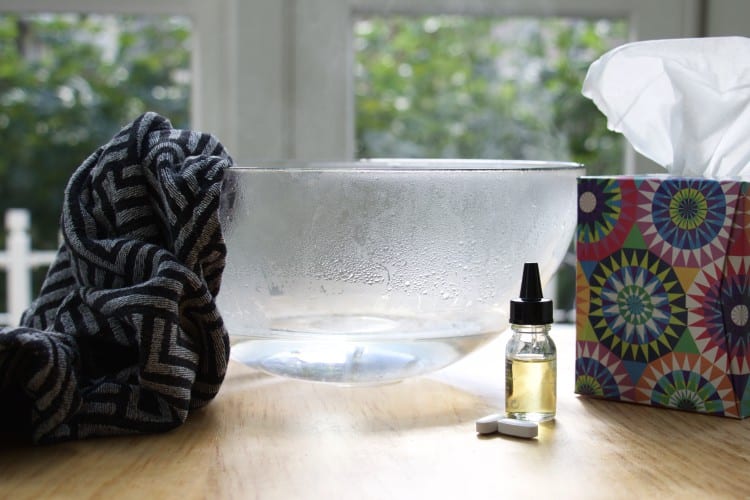Health News & Articles
What you need to know about the common cold
You know it’s coming. It begins with a sore throat, followed by a congested nose, slight headache and some fatigue… Feeling under the weather, you can already tell that you might be coming down with a cold.
By this time of the year, you have probably already been exposed to the rhinovirus, one of the most common of up to 200 different viruses known to cause this annoying sickness. The symptoms of the common cold are:
Sore throat
Runny nose (your mucus will thicken and turn yellowish green as the cold progresses)
Sneezing
Watery eyes
Mild Fever (not always, and only for a short time)
Mild Fatigue
Cough (generally it develops later and can last longer into the second week of the cold)
Slight headache
While a cold can really make us miserable, it is not likely to become serious. In fact, most adults are expected to have several colds a year. The incubation period is one to three days (that is, from the moment of contact with an infected person to when the symptoms show up). The moment you feel the symptoms mentioned above, your cold will be at its most contagious stage, for another three days. So if you feel that you have a cold, you’ll do best to stay away from people with more vulnerable immune systems, such as babies and the elderly for those first few days. Cold viruses are highly contagious and they get into our bodies through the nose, mouth and eyes, from droplets in the air from coughs, sneezes and even talking…and of course, also from sharing drinking glasses and other utensils.
The latest evidence indicates that we cannot catch a cold from being exposed to cold temperatures; however, stress and allergies do affect our vulnerability. Poor sleepers are four times more likely to catch colds, and people who do high intensity exercise are also much more likely to go down sick.
During my late 20s when I played water-polo, a high-intensity sport, it seemed that I always had a runny nose! Even though I was young and fit, I put my body through the high levels of stress of hours of training and competition, therefore taxing my immune system. But since I now practice Yoga and do moderate aerobic exercise (swimming once a week and walking every day), I can say that I have not been down with a cold for maybe years. And it is not too surprising, as studies show that walking or cycling 30 mins per day can reduce the chances of getting colds, especially for women.
 Scientists also agree that not only physical but also psychological and emotional stress can make us vulnerable to catching colds. At our practice we often see someone come down with a knock-out cold right after a period of stress such as moving house, losing a job or even some simple stresses such as going on holiday.
Scientists also agree that not only physical but also psychological and emotional stress can make us vulnerable to catching colds. At our practice we often see someone come down with a knock-out cold right after a period of stress such as moving house, losing a job or even some simple stresses such as going on holiday.
If you are a healthy adult with no health issues, exposure to these nasty little bugs could even be good for you, as your body creates the appropriate fighting response from your own immune system. If you don’t take proper care however, you will need medical attention if you develop any of the following secondary complications, which are a bit more dangerous for your health:
Ear infections
Sinusitis (inflammation and infection of the sinus)
Bronchitis (Bronchial infection)
Pneumonia (Lung infection)
Asthma
These are the symptoms that you need to watch out for:
Painful ear/ears
Fever higher than 38.4 C that lasts for 3 days
Cough that continues for longer than 2 weeks
Shortness of breath
Tightness of the chest
Very painful sinuses
Strong headache
Neck pain and stiffness
Swollen glands
White marks in your throat
Although cold viruses are relatively harmless, it is important to respect our bodies when we are sick, so that we prevent something as simple as a cold from becoming a more complicated problem. Common colds are officially incurable, but we can relieve the unwanted symptoms and recover without complications by making a few changes. Remember your grandmother’s good advice: take time off to rest, hydrate with warming drinks, and eat well.



Leave a Reply